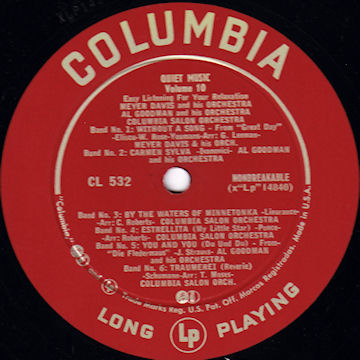

The album “The Man Comes Around,” Cash released in 2003, was even nominated for a Grammy in Best Country Collaboration with Vocals and won a Grammy in 2003 for Best Male Country Vocal Performance. The label went on to distribute all five of Cash’s subsequent studio albums as well. The album “American Recordings” (1994) by Jonny Cash was the first project undertaken by American Recordings. After that, he changed the name of his new record company, which had previously been known as Def American Recordings, to just American Recordings. After learning that it had been admitted into the dictionary, he staged a funeral for the word “def.” He did this to express his sadness about the word’s transition into common usage. Rock bands such as Danzig, Masters of Reality, The Four Horsemen, Wolfsbane, and The Jesus and Mary Chain were among those he represented when he signed them. Although he continued to collaborate with rap groups such as Public Enemy, LL Cool J, and Run DMC, most of his work during this period was centered on the rock and metal music genres. While Simmons remained in New York with Def Jam, Rubin traveled to Los Angeles and established Def American Records. Rubin and Simmons’ relationship ended in 1988 after Rubin disagreed with Lyor Cohen, serving as president of Def Jam at the time. Rick Rubin Net Worth Early Life, Career And His American Recordings Revival And Columbia Records Def American / American Recordings Other notable projects that he worked on during this period include the album “Electric” (1987), which was the third studio album released by the Cult and was produced by Rubin, and the film “Tougher Than Leather” (1988), which was directed and co-written by Rubin and starred Run-DMC. Rubin could switch effortlessly between rap and rock music, and his first cooperation with a metal band was with the band Slayer, with whom he produced their album “Reign in Blood” (1986).

This record is credited with not only assisting in introducing new listeners and a wider audience to the rap-hard rock genre and the revival of Aerosmith’s career. This is likely most accurately depicted in the song “Walk This Way,” written by Run-DMC and Aerosmith and released in 1986. The style of his production work from this era is best described as a hybrid of rap and hard rock in terms of sound. In addition, Rubin was a productive producer for Run-DMC. He was instrumental in the band’s transition from their early punk sound to their current rap style. The Beastie Boys are one of the groups linked with Rubin. As a direct result of this search, Rubin decided to sign with the hip-hop group Public Enemy. These are all boroughs located in the New York City metropolitan area. Rubin went beyond The Bronx, Brooklyn, and Harlem to scout and identify Queens, Staten Island, and Long Island, rappers. In 1984, while Rubin was a student at New York University, Russell Simmons joined him to launch the formal iteration of Def Jam Records, with both Rubin and Simmons working for the company. He is best known for being a former co-president of Columbia Records and a co-founder, with Russell Simmons, of Def Jam Recordings. Rubin was introduced to Russell Simmons, the concert promoter and artist manager, by Jazzy Jay, and the two of them collaborated on the release of JJ Cool J’s “I Need a Beat.”Īmerican music producer Rick Rubin has a net worth of $250 million. They collaborated to produce the song “It’s Yours,” which was recorded by T La Rock and distributed by Def Jam. As Rubin began to take an increased interest in the New York City hip-hop scene, the band disbanded in 1984.Īfter making friends with DJ Jazzy Jay from Zulu Nation, Rubin began to educate himself about the hip-hop production industry. They shared the stage with various hardcore bands, including Meat Puppets, Hüsker Dü, Circle Jerks, Butthole Surfers, and Minor Threat. Hose was a musician involved in the punk movement in New York City and even went on tour in the Midwest and California. In addition, he was the founder of the punk band Hose, and in 1982, one of Hose’s songs was Def Jam’s first release. Rubin started Def Jam Records during his final year of high school by using the four-track recorder at his school.


 0 kommentar(er)
0 kommentar(er)
